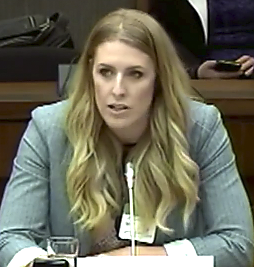
Some of the suggestions posed by the federal government to attempt to provide relief for canola producers aren’t being welcomed by growers.
China has issued non-compliance notices to three Canadian exporters, halting the flow of Canadian canola seeds into the nation. The Chinese market accounts for 40 per cent of all Canadian canola exports.
As the federal government waits for permission for a technical delegation to meet with Chinese officials, it is seeking alternative measures to help farmers find some certainty and relief. One such option is increasing the amount available through the Advance Payments Program, which helps finance operating cash flow needs of western Canadian farmers.
Three of the farmers who testified before a committee Tuesday rejected that as a solution.
“I’m not sure I want to dig a deeper hold taking on more debt,” said Stephen Vanderwalk, an Alberta farmer who also serves as a vice president with the Canadian Wheat Growers Association.
“I guess it’s cash flow but if you don’t have enough money to put your crop in, taking on more debt is not a long term solution at all. Maybe that’s an easy short term solution to make everyone feel good about it, but I don’t think it’s a long-term solution.”
Liberal committee member Francis Drouin agreed that it would be a short term solution while longer-term answers are sought.
But Vanderwalk wasn’t convinced.
“If the markets aren’t there, all you’ve done is take on more money you can’t pay back.”
Fellow Albertan Mark Kaun agreed.
“It’s a bandaid effect,” he said. “You’re just digging yourself into a deeper hole. It’s nothing that I would do. I try to stay as far away from debt as I possibly can.”
Kaun said he would rather take his losses than take on more debt.
But Saskatchewan farmer Megz Reynolds didn’t agree.
“Increasing the amount in the advance program would help many manage the capital required to get through this year,” she said. Still, she wanted some assurance action would be taken to resolve the underlying trade problem and prevent it from happening again. She urged the federal government to be more aware of the potential trade impacts of its relationship with other countries.
“We always seem to be on the defensive,” she said.
“China is going to react, it’s what they do.” She said that Canada should have been working with Chinese officials to mitigate any retaliatory actions before and during the arrest of Huawei official Meng Wanzhou.
“What are we going to do to mitigate these risks?”
Two other proposed actions, one put forward by the Liberals and one by NDP agriculture critic Alistair MacGregor, received a more positive response. Most producers supported the idea of increasing the threshold of biodiesel required in Canadian fuel. It’s currently set at 2.5 per cent. The Canola Council of Canada has asked for that to be raised.
When put to the producers, Vanderwalk supported the idea but remarked that he’d rather see the market, not the government, dictate that. Kaun seemed receptive but warned that the frustrated oil and gas workers of Alberta might take issue with it. Nipawin farmer Terry Youzwa called for that to be a solution on the table.
MacGregor, meanwhile, suggested Canada increase its capacity to refine oilseeds at home. Canola is exported as seeds, meal and oil. Oil, as a processed product, can’t as easily be rejected for biosecurity reasons, like seed can be. Oil also fetches a higher price on the global market than seeds do. Last week, the trade committee heard that Canada doesn’t have additional capacity to refine more seed into oil.
His suggestion to add crushing capacity in Canada was met with a positive reaction, though some noted that it’s far-fetched to think enough can be added to make up for the massive Chinese oilseed market that’s currently closed to Canadians.
